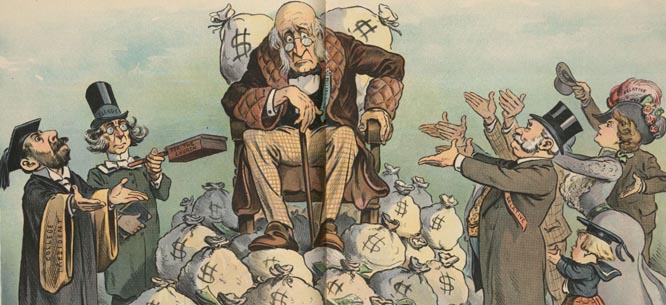


If we can simply bring Christians to the polls-is it any wonder we have the government we have, we have the leaders we have if believers stay home and leave electing our leaders to unbelievers. Governmentuncountable the power of wealth or of the wealthy. "In this past election 54 million evangelical Christians stayed home. When a nation adopts a type of government, the factors taken into consideration include the social and economic conditions of that country. plutocracy /plutkrsi/USA pronunciation n., pl. Cruz made specific references to this ideology or theology when he spoke at Liberty University and, specifically, to the American Family Association, saying this: "Nothing is more important in the next 18 months than that the body of Christ rise up and that Christians stand up, that pastors stand up and lead," Cruz said. to become a "Christian" nation with Christian leaders like himself. and our Constitution, not the pope, before he was elected as the only Catholic president ever. Neither the unlikely emergence of Donald Trump nor the strange juxtaposition of a government that combines rhetorical anti-elitism with unabashed service to. John Kennedy had to tell our country his loyalty would be to the U.S. In this form of government, policies are designed to benefit the wealthy people and are greatly influenced by economic, political, and social conditions. Abstract published by arrangement with Sage Journals.I wrote a Guest Opinion several months ago suggesting Republican voters were primed and ready for a theocratic plutocracy.Ī theocracy is a form of government in which clergy have official recognition as civil rulers and official policy is either governed by officials regarded as "divinely" guided or is pursuant to doctrine of a particular religion or religious group. Plutocracy is the form of Oligarchy in which the government and power remain in the hand of wealthy people directly or indirectly. Oligarchies date back the 600s BCE when the Greek city-states of Sparta and Athens were ruled by an elite group of educated aristocrats. Thus, plutocracies are always oligarchies, but oligarchies are not always plutocracies.

It is suggested they may play out in ways that frustrate their architects' hopes, due to the continuing baleful consequences of neoliberalism. The leaders of a plutocracy are always wealthy, while the leaders of an oligarchy need not be rich to command control. How a Plutocracy Works A plutocracy may not be the result of a planned system of government. Plutocracy is often linked to the term dynastic wealth. These claims are critically analyzed in principle, but how they work out in practice is hard to prophesy. A plutocracy is a system of government where the wealthiest people in a country rule or possess the power, and thus govern directly or indirectly. The word was first used by the Greek historian and philosopher Xenophon, and he used it to refer to the Athenian society that existed before the Solon reforms, whose political congress was under the control of the big landowners and. The Coalition purports to be democratizing police accountability through elected Police and Crime Commissioners. The term plutocracy comes from ancient Greek.It is formed by the words ploutos meaning wealth and krathos meaning power and government. The current British Coalition government's tendentious 'austerity' measures make these perennial problems especially acute. Accountability has become accountancy, under the auspices of New Public Management. The complex role of the police has been distilled down to criminal catching. The article focuses on how this has developed in England and Wales, although there are parallels with other jurisdictions. Both issues have been radically altered through the profound transformation of policing produced by the last three decades of neo-liberal hegemony. This article critically analyses two key debates about police and policing: the problematic definition of their role, and how they can be rendered democratically accountable.


 0 kommentar(er)
0 kommentar(er)
